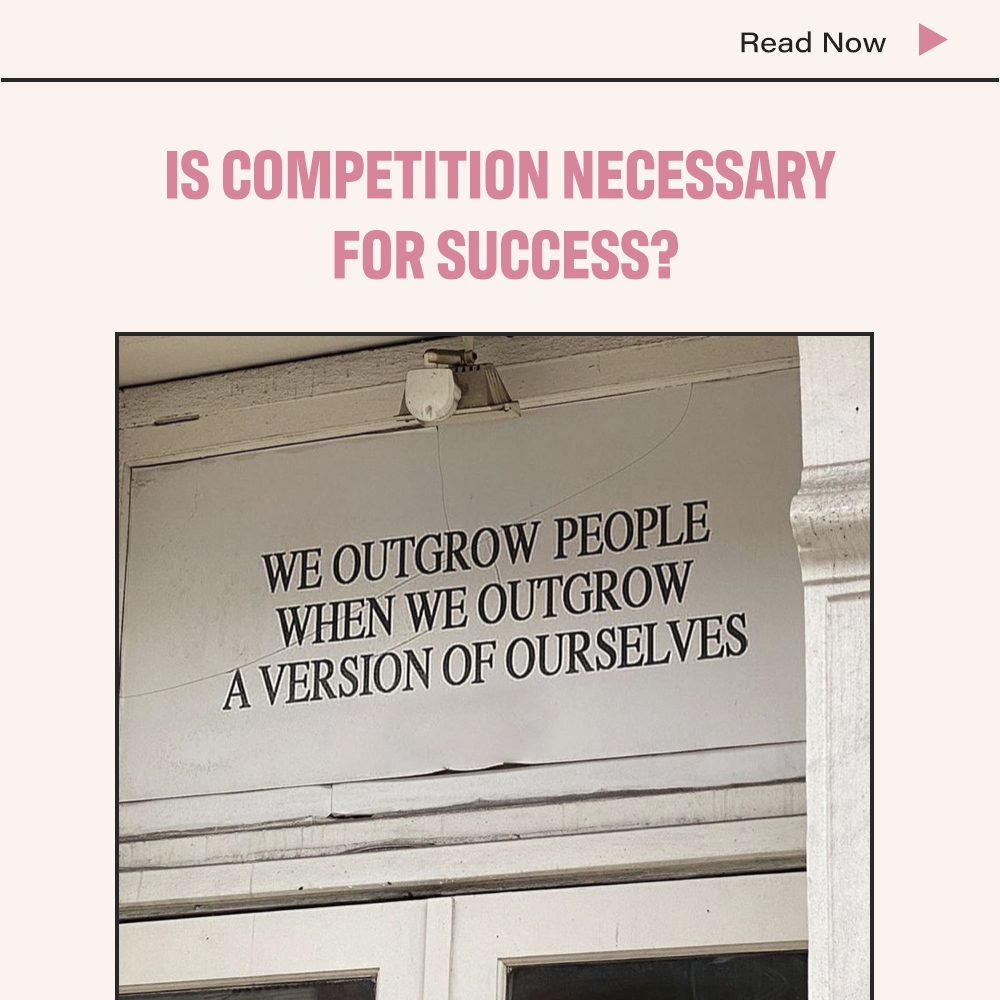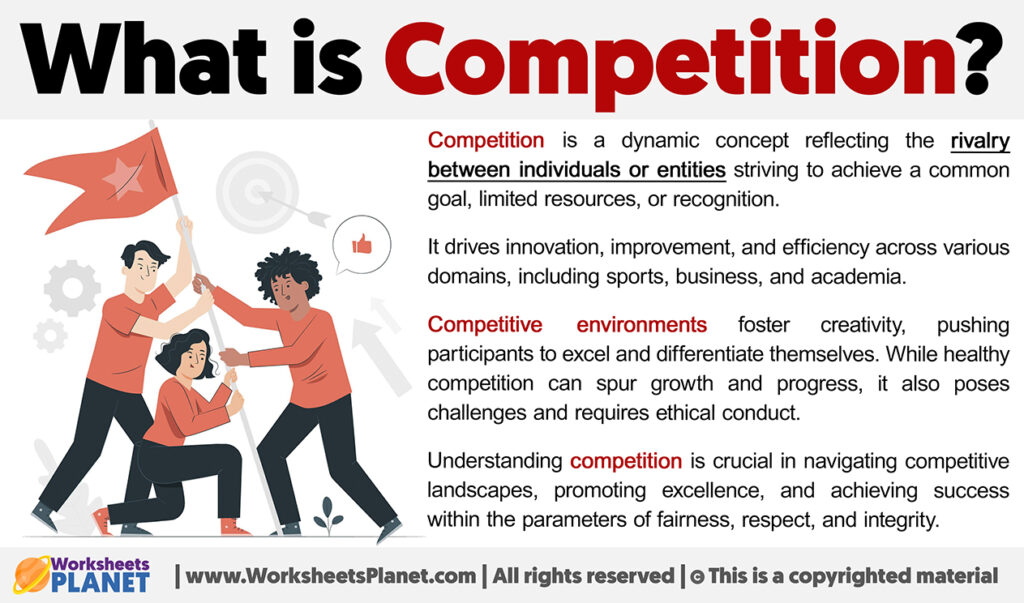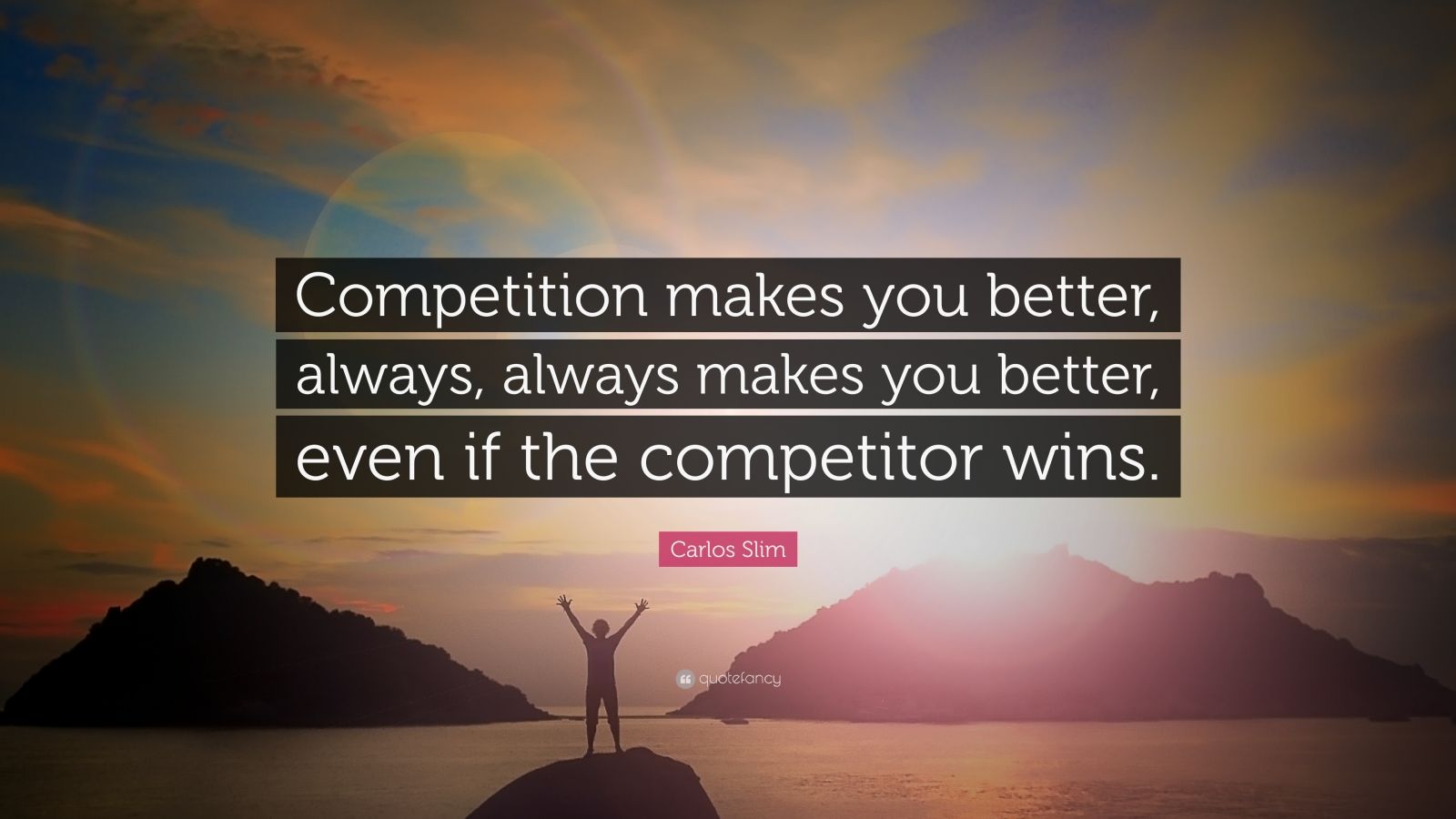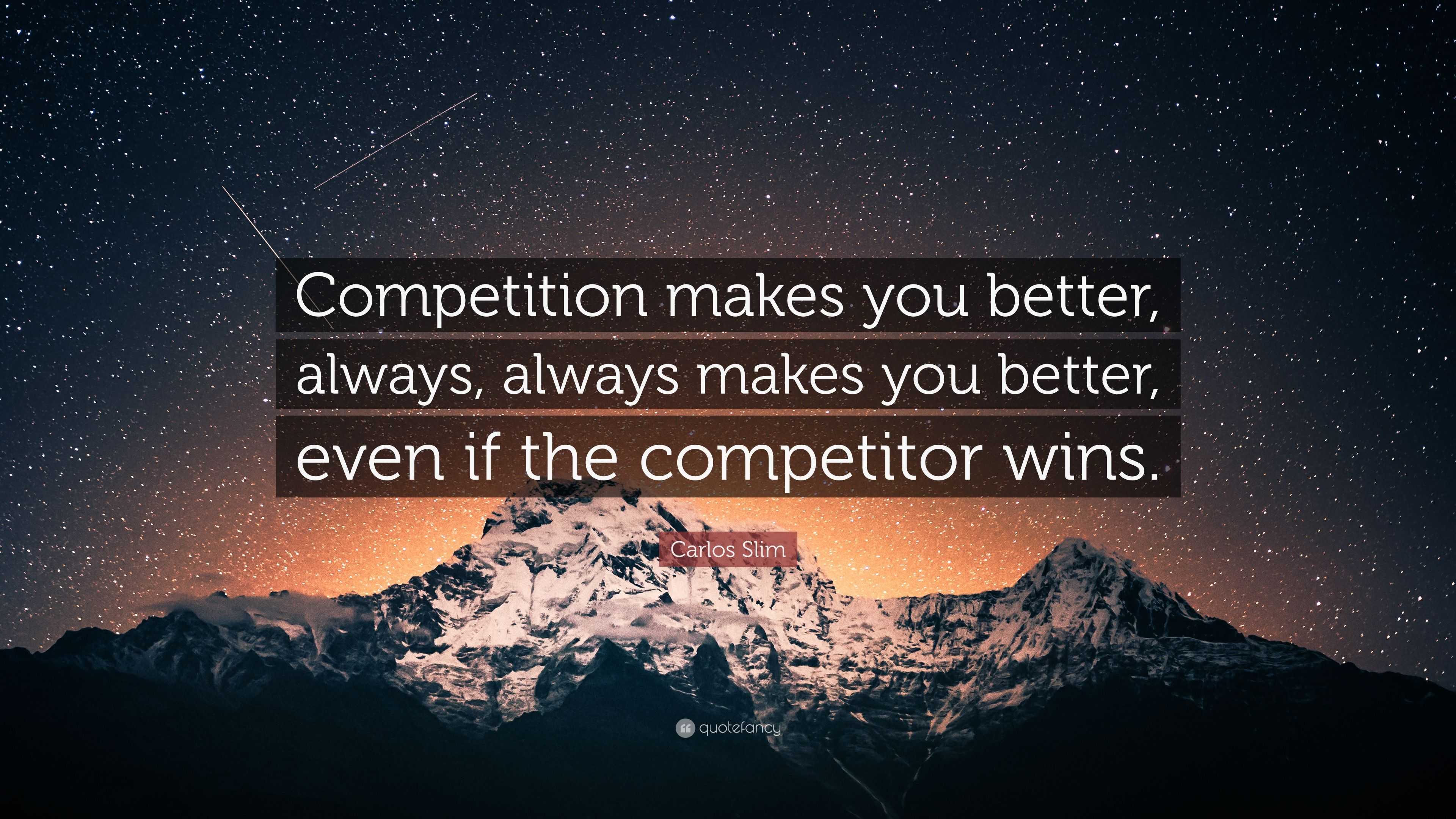Competition Is Necessary For Success

The age-old debate of whether competition fosters success continues to spark discussion across various sectors, from economics to education and even personal development. While some view it as a ruthless and potentially destructive force, a growing body of evidence suggests that competition, when properly channeled, is a catalyst for innovation, efficiency, and overall achievement.
This article examines the multifaceted role of competition in driving success, exploring its impact on individuals, organizations, and society as a whole. We delve into the mechanisms through which competition motivates individuals to strive for excellence, pushes organizations to innovate, and ultimately benefits consumers through improved products and services.
The Engine of Innovation
Competition serves as a powerful motivator, compelling individuals and organizations to constantly improve and adapt. When faced with rivals, individuals are more likely to push their limits, acquire new skills, and seek out innovative solutions to gain a competitive edge. The Harvard Business Review, for example, has published numerous studies highlighting the link between competition and increased innovation within industries.
Businesses are driven to develop new products, refine existing processes, and enhance customer service in order to attract and retain customers in a competitive marketplace. This constant striving for improvement ultimately leads to higher quality goods and services, benefiting consumers and stimulating economic growth.
Driving Efficiency and Lower Prices
One of the most tangible benefits of competition is its impact on efficiency. In a competitive environment, businesses are constantly seeking ways to reduce costs, streamline operations, and maximize productivity to maintain profitability. This focus on efficiency translates to lower prices for consumers, making goods and services more accessible and affordable.
The U.S. Department of Justice's Antitrust Division actively promotes competition in various sectors, recognizing its crucial role in protecting consumers from monopolies and unfair pricing practices. They argue that unchecked market power can stifle innovation and lead to inflated prices, harming the economy.
The Importance of Fair Competition
While competition is generally seen as beneficial, it is crucial to ensure that it is fair and ethical. Unfair competitive practices, such as price fixing, insider trading, and deceptive advertising, can undermine the integrity of the market and harm consumers.
Governments and regulatory bodies play a vital role in establishing and enforcing rules and regulations that promote fair competition and prevent anti-competitive behavior. This ensures that all participants have an equal opportunity to succeed based on merit and innovation, rather than unethical or illegal tactics.
Human-Interest Angle: Overcoming Obstacles
The story of Elon Musk and SpaceX provides a compelling example of how competition can drive innovation and lead to extraordinary achievements. Faced with established players in the aerospace industry, Musk pursued a radical approach, challenging conventional wisdom and pushing the boundaries of what was thought possible.
Through relentless innovation and a relentless pursuit of efficiency, SpaceX has disrupted the space industry, significantly lowering the cost of space travel and paving the way for new possibilities. This example illustrates how competition can motivate individuals and organizations to overcome obstacles and achieve seemingly impossible goals.
Conclusion
Competition, when properly managed and regulated, is a necessary ingredient for success in various aspects of life. It fosters innovation, drives efficiency, and ultimately benefits consumers by providing access to higher quality goods and services at competitive prices. While the need for fairness and ethical conduct is paramount, the power of competition to stimulate progress and drive human achievement is undeniable.


















